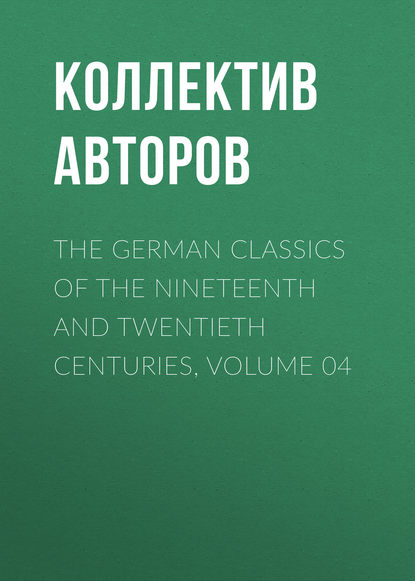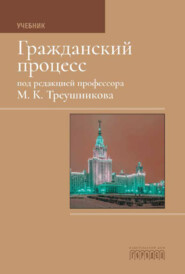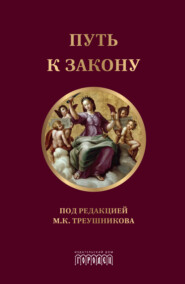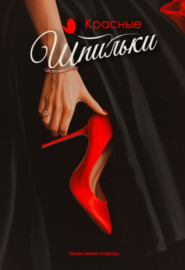По всем вопросам обращайтесь на: info@litportal.ru
(©) 2003-2024.
✖
The German Classics of the Nineteenth and Twentieth Centuries, Volume 04
Настройки чтения
Размер шрифта
Высота строк
Поля
Kleist has remained a solitary figure in German literature. Owing little to the dominant literary influences of his day, he has also found few imitators. Two generations passed before he began to come into his heritage of legitimate fame. Now that a full century has elapsed since his tragic death, his place is well assured among the greatest dramatic and narrative authors of Germany. A brave man struggling desperately against hopeless odds, a patriot expending his genius with lavish unselfishness for the service of his country in her darkest days, he has been found worthy by posterity to stand as the most famous son of a faithful Prussian family of soldiers.
MICHAEL KOHLHAAS (1808)
A Tale from an Old Chronicle
TRANSLATED BY FRANCES A. KING
Toward the middle of the sixteenth century there lived on the banks of the river Havel a horse-dealer by the name of Michael Kohlhaas, the son of a school-master, one of the most upright and, at the same time, one of the most terrible men of his day. Up to his thirtieth year this extraordinary man would have been considered the model of a good citizen. In a village which still bears his name, he owned a farmstead on which he quietly supported himself by plying his trade. The children with whom his wife presented him were brought up in the fear of God, and taught to be industrious and honest; nor was there one among his neighbors who had not enjoyed the benefit of his kindness or his justice. In short, the world would have had every reason to bless his memory if he had not carried to excess one virtue—his sense of justice, which made of him a robber and a murderer.
He rode abroad once with a string of young horses, all well fed and glossy-coated, and was turning over in his mind how he would employ the profit that he hoped to make from them at the fairs; part of it, as is the way with good managers, he would use to gain future profits, but he would also spend part of it in the enjoyment of the present. While thus engaged he reached the Elbe, and near a stately castle, situated on Saxon territory, he came upon a toll-bar which he had never found on this road before. Just in the midst of a heavy shower he halted with his horses and called to the toll-gate keeper, who soon after showed his surly face at the window. The horse-dealer told him to open the gate. "What new arrangement is this?" he asked, when the toll-gatherer, after some time, finally came out of the house.
"Seignorial privilege" answered the latter, unlocking the gate, "conferred by the sovereign upon Squire Wenzel Tronka."
"Is that so?" queried Kohlhaas; "the Squire's name is now Wenzel?" and gazed at the castle, the glittering battlements of which looked out over the field. "Is the old gentleman dead?"
"Died of apoplexy," answered the gate keeper, as he raised the toll-bar.
"Hum! Too bad!" rejoined Kohlhaas. "An estimable old gentleman he was, who liked to watch people come and go, and helped along trade and traffic wherever he could. He once had a causeway built because a mare of mine had broken her leg out there on the road leading to the village. Well, how much is it?" he asked, and with some trouble got out the few groschen demanded by the gate keeper from under his cloak, which was fluttering in the wind. "Yes, old man," he added, picking up the leading reins as the latter muttered "Quick, quick!" and cursed the weather; "if this tree had remained standing in the forest it would have been better for me and for you." With this he gave him the money, and started to ride on.
He had hardly passed under the toll-bar, however, when a new voice cried out from the tower behind him, "Stop there, horse-dealer!" and he saw the castellan close a window and come hurrying down to him. "Well, I wonder what he wants!" Kohlhaas asked himself, and halted with his horses. Buttoning another waistcoat over his ample body, the castellan came up to him and, standing with his back to the storm, demanded his passport.
"My passport?" queried Kohlhaas. Somewhat disconcerted, he replied that he had none, so far as he knew, but that, if some one would just describe to him what in the name of goodness this was, perhaps he might accidentally happen to have one about him. The castellan, eying him askance, retorted that without an official permit no horse-dealer was allowed to cross the border with horses. The horse-dealer assured him that seventeen times in his life he had crossed the border without such a permit; that he was well acquainted with all the official regulations which applied to his trade; that this would probably prove to be only a mistake; the castellan would please consider the matter and, since he had a long day's journey before him, not detain him here unnecessarily any longer. But the castellan answered that he was not going to slip through the eighteenth time, that the ordinance concerning this matter had been only recently issued, and that he must either procure the passport here or go back to the place from which he had come. After a moment's reflection, the horse-dealer, who was beginning to feel bitter, got down from his horse, turned it over to a groom, and said that he would speak to Squire Tronka himself on the subject. He really did walk toward the castle; the castellan followed him, muttering something about niggardly money-grubbers, and what a good thing it was to bleed them; and, measuring each other with their glances, the two entered the castle-hall.
It happened that the Squire was sitting over his wine with some merry friends, and a joke had caused them all to break into uproarious laughter just as Kohlhaas approached him to make his complaint. The Squire asked what he wanted; the young nobles, at sight of the stranger, became silent; but no sooner had the latter broached his request concerning the horses, than the whole group cried out, "Horses! Where are they?" and hurried over to the window to look at them. When they saw the glossy string, they all followed the suggestion of the Squire and flew down into the courtyard. The rain had ceased; the castellan, the steward, and the servant gathered round them and all scanned the horses. One praised a bright bay with a white star on its forehead, another preferred a chestnut, a third patted the dappled horse with tawny spots; and all were of the opinion that the horses were like deer, and that no finer were raised in the country. Kohlhaas answered cheerily that the horses were no better than the knights who were to ride them, and invited the men to buy. The Squire, who eagerly desired the big bay stallion, went so far as to ask its price, and the steward urged him to buy a pair of black horses, which he thought he could use on the farm, as they were short of horses. But when the horse-dealer had named his price the young knights thought it too high, and the Squire said that Kohlhaas would have to ride in search of the Round Table and King Arthur if he put such a high value on his horses. Kohlhaas noticed that the castellan and the steward were whispering together and casting significant glances at the black horses the while, and, moved by a vague presentiment, made every effort to sell them the horses. He said to the Squire, "Sir, I bought those black horses six months ago for twenty-five gold gulden; give me thirty and you shall have them." Two of the young noblemen who were standing beside the Squire declared quite audibly that the horses were probably worth that much; but the Squire said that while he might be willing to pay out money for the bay stallion he really should hardly care to do so for the pair of blacks, and prepared to go in. Whereupon Kohlhaas, saying that the next time he came that way with his horses they might perhaps strike a bargain, took leave of the Squire and, seizing the reins of his horse, started to ride away.
At this moment the castellan stepped forth from the crowd and reminded him that he would not be allowed to leave without a passport. Kohlhaas turned around and inquired of the Squire whether this statement, which meant the ruin of his whole trade, were indeed correct. The Squire, as he went off, answered with an embarrassed air, "Yes, Kohlhaas, you must get a passport. Speak to the castellan about it, and go your way." Kohlhaas assured him that he had not the least intention of evading the ordinances which might be in force concerning the exportation of horses. He promised that when he went through Dresden he would take out the passport at the chancery, and begged to be allowed to go on, this time, as he had known nothing whatever about this requirement. "Well!" said the Squire, as the storm at that moment began to rage again and the wind blustered about his scrawny legs; "let the wretch go. Come!" he added to the young knights, and, turning around, started toward the door. The castellan, facing about toward the Squire, said that Kohlhaas must at least leave behind some pledge as security that he would obtain the passport. The Squire stopped again under the castle gate. Kohlhaas asked how much security for the black horses in money or in articles of value he would be expected to leave. The steward muttered in his beard that he might just as well leave the blacks themselves.
"To be sure," said the castellan; "that is the best plan; as soon as he has taken out the passport he can come and get them again at any time." Kohlhaas, amazed at such a shameless demand, told the Squire, who was holding the skirts of his doublet about him for warmth, that what he wanted to do was to sell the blacks; but as a gust of wind just then blew a torrent of rain and hail through the gate, the Squire, in order to put an end to the matter, called out, "If he won't give up the horses, throw him back again over the toll-bar;" and with that he went off.
The horse-dealer, who saw clearly that on this occasion he would have to yield to superior force, made up his mind to comply with the demand, since there really was no other way out of it. He unhitched the black horses and led them into a stable which the castellan pointed out to him. He left a groom in charge of them, provided him with money, warned him to take good care of the horses until he came back, and with the rest of the string continued his journey to Leipzig, where he purposed to go to the fair. As he rode along he wondered, in half uncertainty, whether after all such a law might not have been passed in Saxony for the protection of the newly started industry of horse-raising.
On his arrival in Dresden, where, in one of the suburbs of the city, he owned a house and stable—this being the headquarters from which he usually conducted his business at the smaller fairs around the country—he went immediately to the chancery. And here he learned from the councilors, some of whom he knew, that indeed, as his first instinct had already told him, the story of the passport was only made up. At Kohlhaas's request, the annoyed councilors gave him a written certificate of its baselessness, and the horse-dealer smiled at the lean Squire's joke, although he did not quite see what purpose he could have had in view. A few weeks later, having sold to his satisfaction the string of horses he had with him, Kohlhaas returned to Tronka Castle harboring no other resentment save that caused by the general misery of the world.
The castellan, to whom he showed the certificate, made no comment upon it, and to the horse-dealer's question as to whether he could now have his horses back, replied that he need only go down to the stable and get them. But even while crossing the courtyard, Kohlhaas learned with dismay that for alleged insolence his groom had been cudgeled and dismissed in disgrace a few days after being left behind at Tronka Castle. Of the boy who informed him of this he inquired what in the world the groom had done, and who had taken care of the horses in the mean time; to this the boy answered that he did not know, and then opened to the horse-dealer, whose heart was already full of misgivings, the door of the stable in which the horses stood. How great, though, was his astonishment when, instead of his two glossy, well-fed blacks, he spied a pair of lean, worn-out jades, with bones on which one could have hung things as if on pegs, and with mane and hair matted together from lack of care and attention—in short, the very picture of utter misery in the animal kingdom! Kohlhaas, at the sight of whom the horses neighed and moved feebly, was extremely indignant, and asked what had happened to his horses. The boy, who was standing beside him, answered that they had not suffered any harm, and that they had had proper feed too, but, as it had been harvest time, they had been used a bit in the fields because there weren't draught animals enough. Kohlhaas cursed over the shameful, preconcerted outrage; but realizing that he was powerless he suppressed his rage, and, as no other course lay open to him, was preparing to leave this den of thieves again with his horses when the castellan, attracted by the altercation, appeared and asked what was the matter.
"What's the matter?" echoed Kohlhaas. "Who gave Squire Tronka and his people permission to use for work in the fields the black horses that I left behind with him?" He added, "Do you call that humane?" and trying to rouse the exhausted nags with a switch, he showed him that they did not move. The castellan, after he had watched him for a while with an expression of defiance, broke out, "Look at the ruffian! Ought not the churl to thank God that the jades are still alive?" He asked who would have been expected to take care of them when the groom had run away, and whether it were not just that the horses should have worked in the fields for their feed. He concluded by saying that Kohlhaas had better not make a rumpus or he would call the dogs and with them would manage to restore order in the courtyard.
The horse-dealer's heart thumped against his doublet. He felt a strong desire to throw the good-for-nothing, pot-bellied scoundrel into the mud and set his foot on his copper-colored face. But his sense of justice, which was as delicate as a gold-balance, still wavered; he was not yet quite sure before the bar of his own conscience whether his adversary were really guilty of a crime. And so, swallowing the abusive words and going over to the horses, he silently pondered the circumstances while arranging their manes, and asked in a subdued voice for what fault the groom had been turned out of the castle. The castellan replied, "Because the rascal was insolent in the courtyard; because he opposed a necessary change of stables and demanded that the horses of two young noblemen, who came to the castle, should, for the sake of his nags, be left out on the open high-road over night."
Kohlhaas would have given the value of the horses if he could have had the groom at hand to compare his statement with that of this thick-lipped castellan. He was still standing, straightening the tangled manes of the black horses, and wondering what could be done in the situation in which he found himself, when suddenly the scene changed, and Squire Wenzel Tronka, returning from hare-hunting, dashed into the courtyard, followed by a swarm of knights, grooms, and dogs. The castellan, when asked what had happened, immediately began to speak, and while, on the one hand, the dogs set up a murderous howl at the sight of the stranger, and, on the other, the knights sought to quiet them, he gave the Squire a maliciously garbled account of the turmoil the horse-dealer was making because his black horses had been used a little. He said, with a scornful laugh, that the horse-dealer refused to recognize the horses as his own.
Kohlhaas cried, "Your worship, those are not my horses. Those are not the horses which were worth thirty gold gulden! I want my well-fed, sound horses back again!"
The Squire, whose face grew momentarily pale, got down from his horse and said, "If the d–d scoundrel doesn't want to take the horses back, let him leave them here. Come, Gunther!" he called; "Hans, come!" He brushed the dust off his breeches with his hand and, just as he reached the door with the young knights, called "Bring wine!" and strode into the house.
Kohlhaas said that he would rather call the knacker and have his horses thrown into the carrion pit than lead them back, in that condition, to his stable at Kohlhaasenbrück. Without bothering himself further about the nags, he left them standing where they were, and, declaring that he should know how to get his rights, mounted his bay horse and rode away.
He was already galloping at full speed on the road to Dresden when, at the thought of the groom and of the complaint which had been made against him at the castle, he slowed down to a walk, and, before he had gone a thousand paces farther, turned his horse around again and took the road toward Kohlhaasenbrück, in order, as seemed to him wise and just, to hear first what the groom had to say. For in spite of the injuries he had suffered, a correct instinct, already familiar with the imperfect organization of the world, inclined him to put up with the loss of the horses and to regard it as a just consequence of the groom's misconduct in case there really could be imputed to the latter any such fault as the castellan charged. On the other hand, an equally admirable feeling took deeper and deeper root the farther he rode, hearing at every stop of the outrages perpetrated daily upon travelers at Tronka Castle; this instinct told him that if, as seemed probable, the whole incident proved to be a preconcerted plot, it was his duty to the world to make every effort to obtain for himself satisfaction for the injury suffered, and for his fellow-countrymen a guarantee against similar injuries in the future.
On his arrival at Kohlhaasenbrück, as soon as he had embraced his faithful wife Lisbeth and had kissed his children, who were shouting joyfully about his knees, he asked at once after Herse, the head groom, and whether anything had been heard from him. Lisbeth answered, "Oh yes, dearest Michael—that Herse! Just think! The poor fellow arrived here about a fortnight ago, most pitifully bruised and beaten; really, he was so battered that he couldn't even breathe freely. We put him to bed, where he kept coughing up blood, and after repeated questions we heard a story that no one could understand. He told us that you had left him at Tronka Castle in charge of some horses which they would not allow to pass through there, that by the most shameful maltreatment he had been forced to leave the castle, and that it had been impossible for him to bring the horses with him."
"Really!" exclaimed Kohlhaas, taking off his cloak. "I suppose he has recovered before this?"
"Pretty well, except that he still coughs blood," she answered. "I wanted to send another groom at once to Tronka Castle so as to have the horses taken care of until you got back there; for as Herse has always shown himself truthful and, indeed, more faithful to us than any other has ever been, I felt I had no right to doubt his statement, especially when confirmed by so many bruises, or to think that perhaps he had lost the horses in some other way. He implored me, however, not to require any one to go to that robber's nest, but to give the animals up if I didn't wish to sacrifice a man's life for them."
"And is he still abed?" asked Kohlhaas, taking off his neckcloth.
"He's been going about in the yard again for several days now," she answered. "In short, you will see for yourself," she continued, "that it's all quite true and that this incident is merely another one of those outrages that have been committed of late against strangers at Tronka Castle."
"I must first investigate that," answered Kohlhaas. "Call him in here, Lisbeth, if he is up and about." With these words he sat down in the arm-chair and his wife, delighted at his calmness, went and fetched the groom.
"What did you do at Tronka Castle," asked Kohlhaas, as Lisbeth entered the room with him. "I am not very well pleased with you."
On the groom's pale face spots of red appeared at these words. He was silent for a while—then he answered, "You are right there, Sir; for a sulphur cord, which by the will of Providence I was carrying in my pocket so as to set fire to the robber's nest from which I had been driven, I threw into the Elbe when I heard a child crying inside the castle, and I thought to myself, 'Let God's lightning burn it down; I will not!'"
Kohlhaas was disconcerted. "But for what cause were you driven from the castle?" he asked.
To this Herse answered, "Something very wrong, Sir," and wiped the perspiration from his forehead. "What is done, however, can't be undone. I wouldn't let the horses be worked to death in the fields, and so I said that they were still young and had never been in harness."
Kohlhaas, trying to hide his perplexity, answered that he had not told the exact truth, as the horses had been in harness for a little while in the early part of the previous spring. "As you were a sort of guest at the castle," he continued, "you really might have been obliging once or twice whenever they happened not to have horses enough to get the crops in as fast as they wished."
"I did so, Sir," said Herse. "I thought, as long as they looked so sulky about it, that it wouldn't hurt the blacks for once, and so on the third afternoon I hitched them in front of the others and brought in three wagon-loads of grain from the fields."
Kohlhaas, whose heart was thumping, looked down at the ground and said, "They told me nothing about that, Herse!"
Herse assured him that it was so. "I wasn't disobliging save in my refusal to harness up the horses again when they had hardly eaten their fill at midday; then too, when the castellan and the steward offered to give me free fodder if I would do it, telling me to pocket the money that you had left with me to pay for feed, I answered that I would do something they didn't bargain for, turned around, and left them!"
"But surely it was not for that disobliging act that you were driven away from the castle," said Kohlhaas.
"Mercy, no!" cried the groom. "It was because of a very wicked crime! For the horses of two knights who came to the castle were put into the stable for the night and mine were tied to the stable door. And when I took the blacks from the castellan, who was putting the knights' horses into my stable, and asked where my animals were to go, he showed me a pigsty built of laths and boards against the castle wall."
"You mean," interrupted Kohlhaas, "that it was such a poor shelter for horses that it was more like a pigsty than a stable?"
"It was a pigsty, Sir," answered Herse; "really and truly a pigsty, with the pigs running in and out; I couldn't stand upright in it."
"Perhaps there was no other shelter to be found for the blacks," Kohlhaas rejoined; "and of course, in a way, the knights' horses had the right to better quarters."
"There wasn't much room," answered the groom, dropping his voice. "Counting these two, there were, in all, seven knights lodging at the castle. If it had been you, you would have had the horses moved closer together. I said I would try to rent a stable in the village, but the castellan objected that he had to keep the horses under his own eyes and told me not to dare to take them away from the courtyard."
"Hum!" said Kohlhaas. "What did you say to that?"
"As the steward said the two guests were only going to spend the night and continue on their way the next morning, I led the two horses into the pigsty. But the following day passed and they did not go, and on the third it was said the gentlemen were going to stay some weeks longer at the castle."
"After all, it was not so bad, Herse, in the pigsty, as it seemed to you when you first stuck your nose into it," said Kohlhaas.
"That's true," answered the groom. "After I had swept the place out a little, it wasn't so bad! I gave a groschen to the maid to have her put the pigs somewhere else; and by taking the boards from the roof-bars at dawn and laying them on again at night, I managed to arrange it so that the horses could stand upright in the daytime. So there they stood like geese in a coop, and stuck their heads through the roof, looking around for Kohlhaasenbrück or some other place where they would be better off."
"Well then," said Kohlhaas, "why in the world did they drive you away?"

















